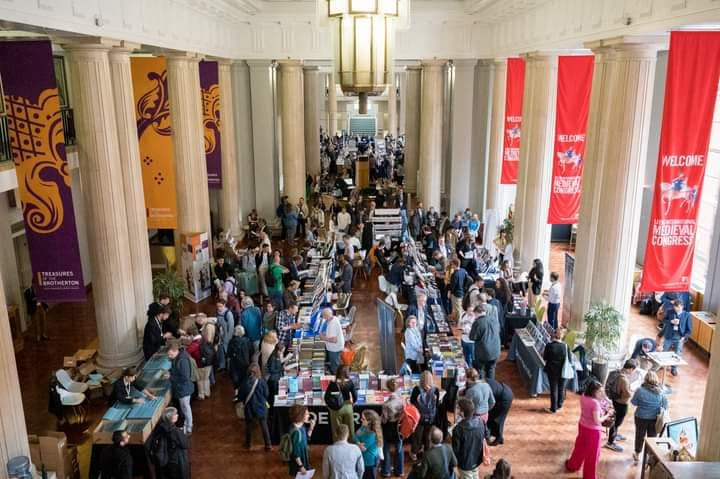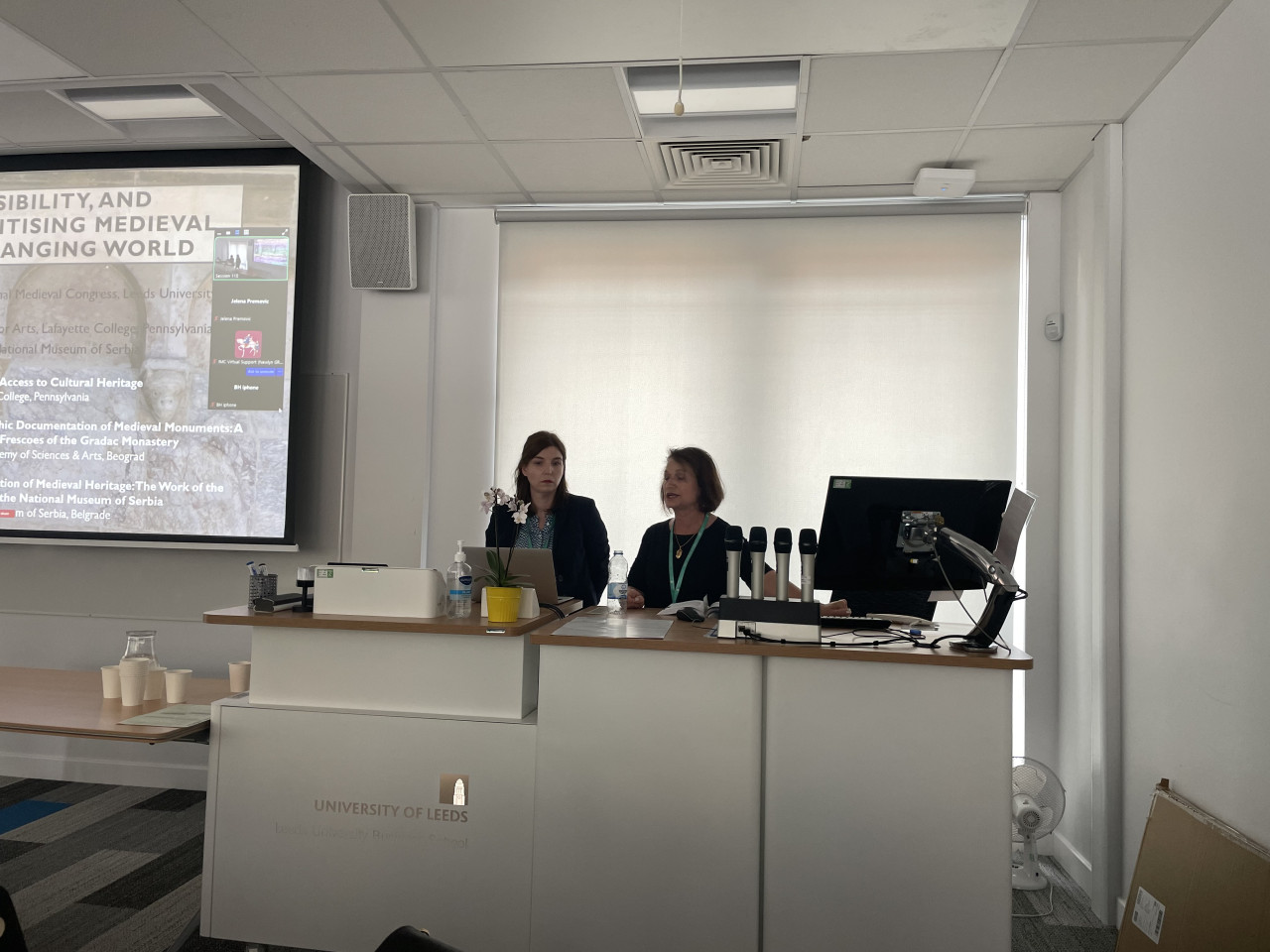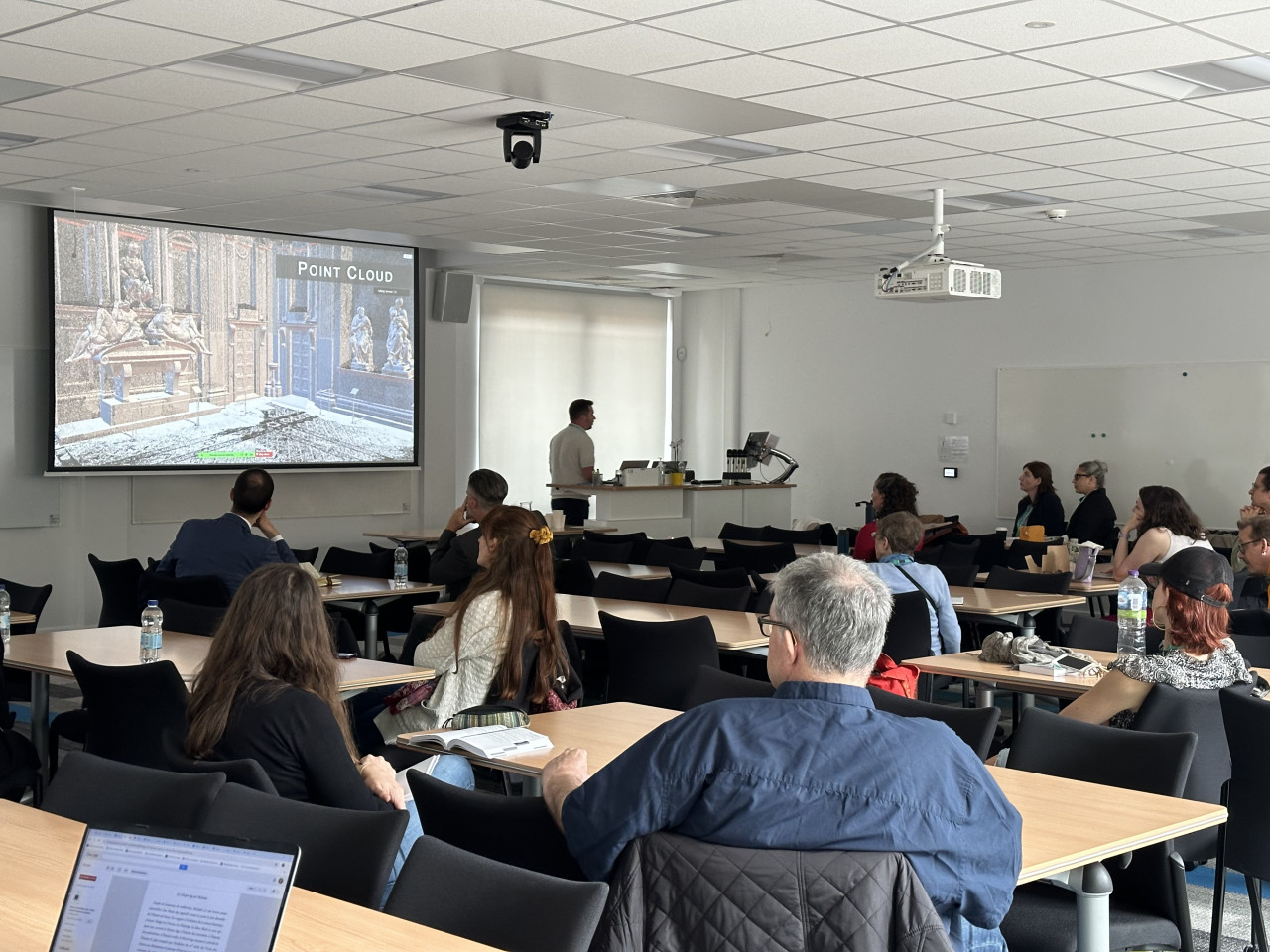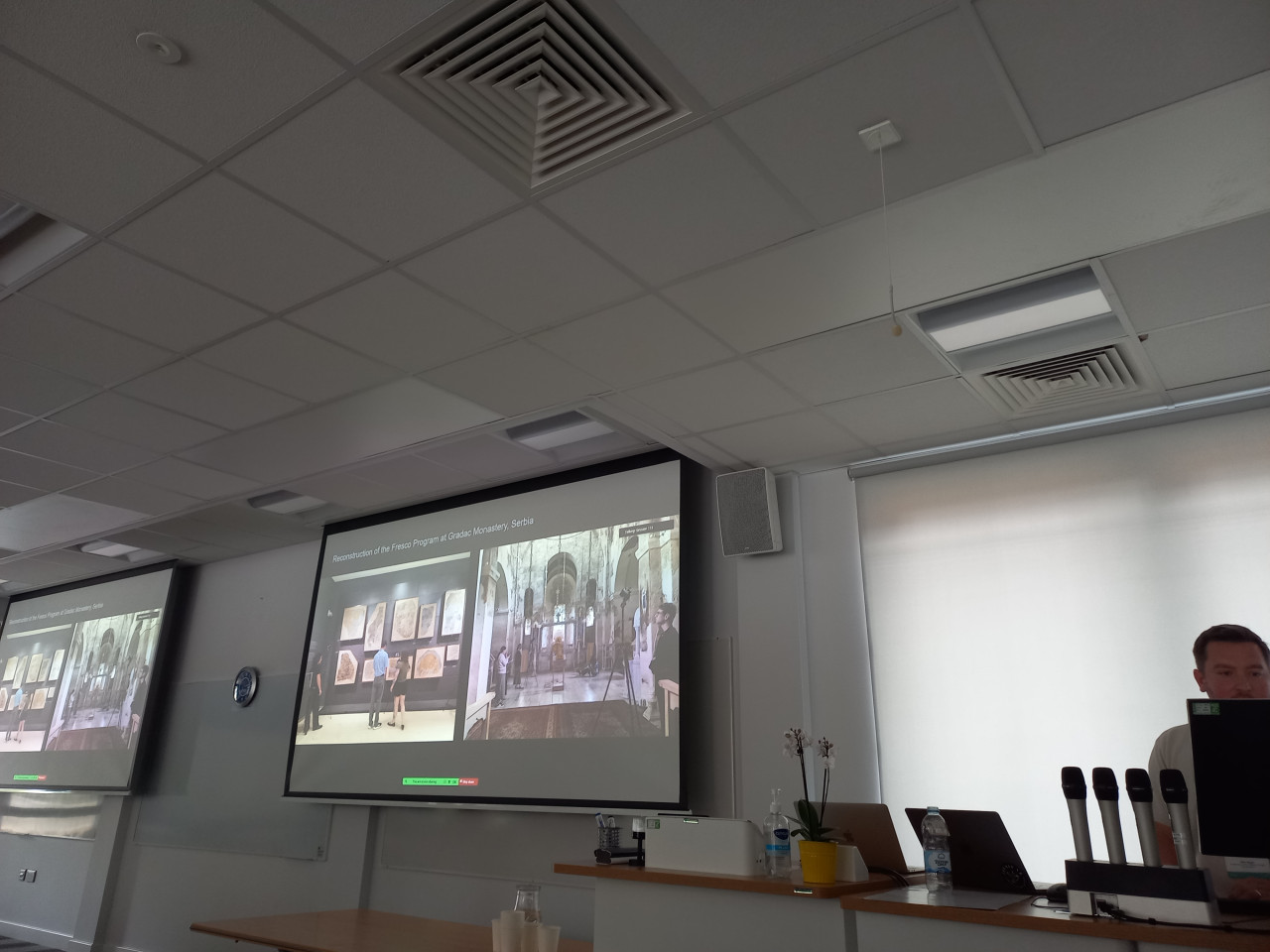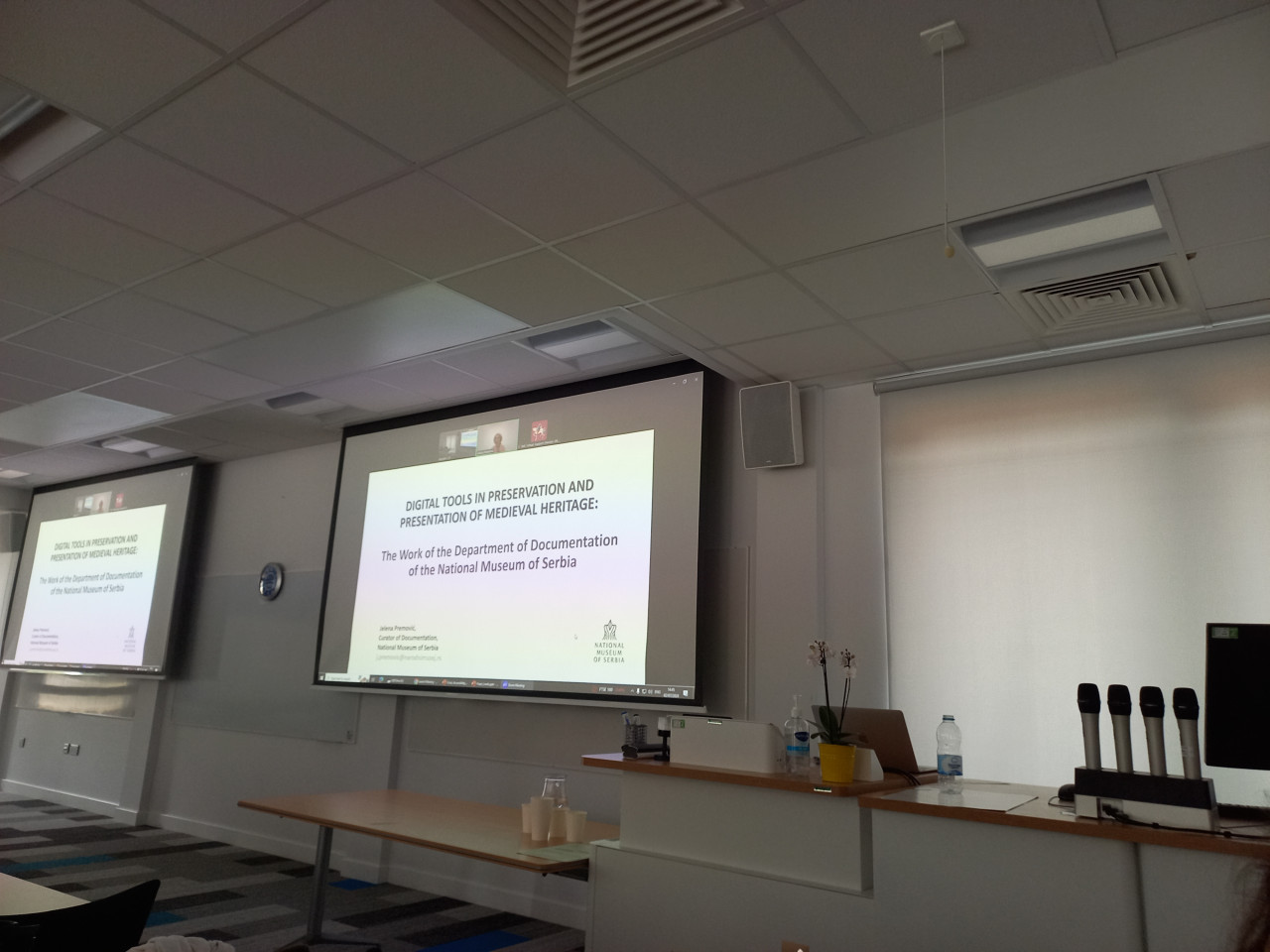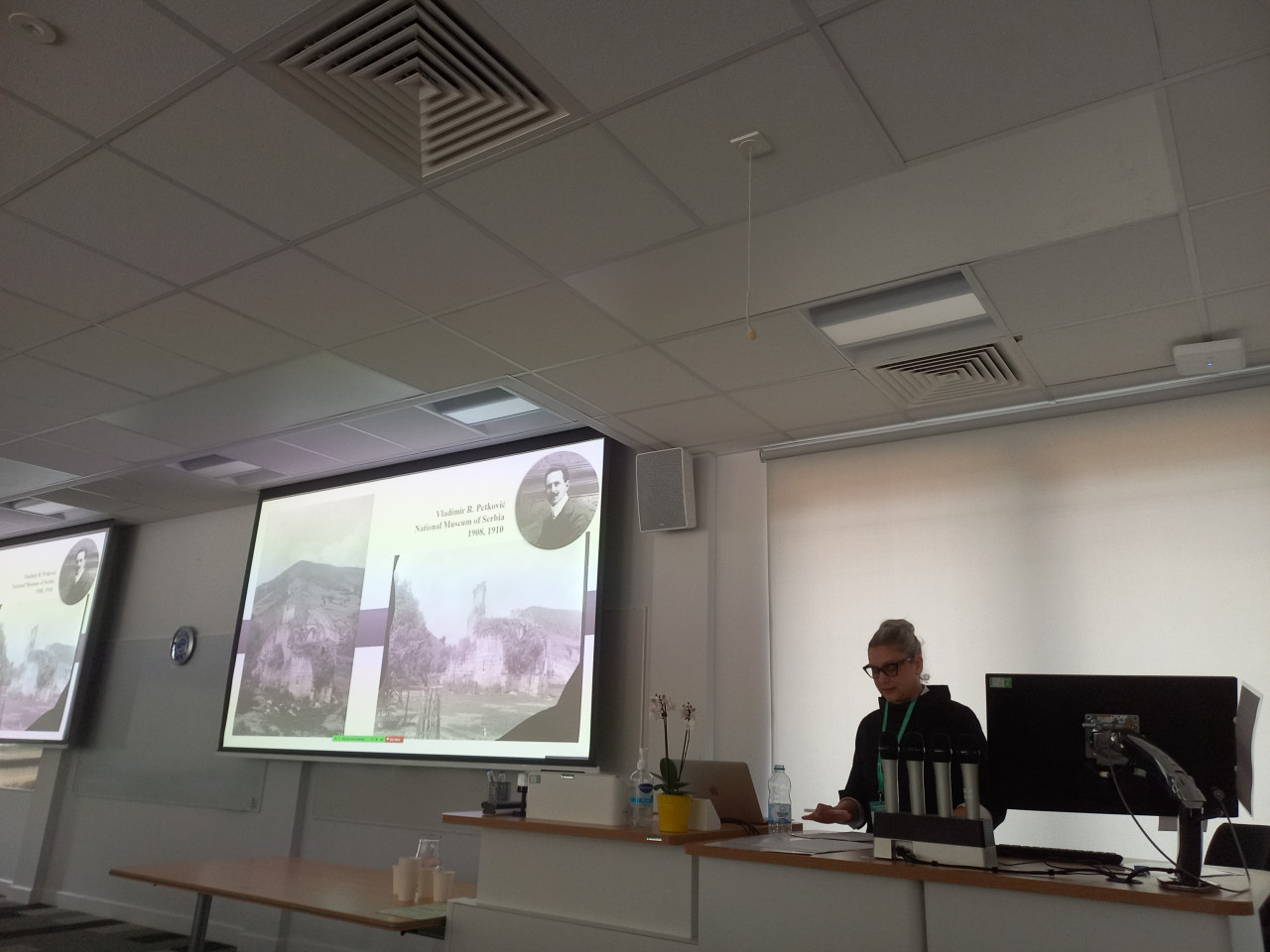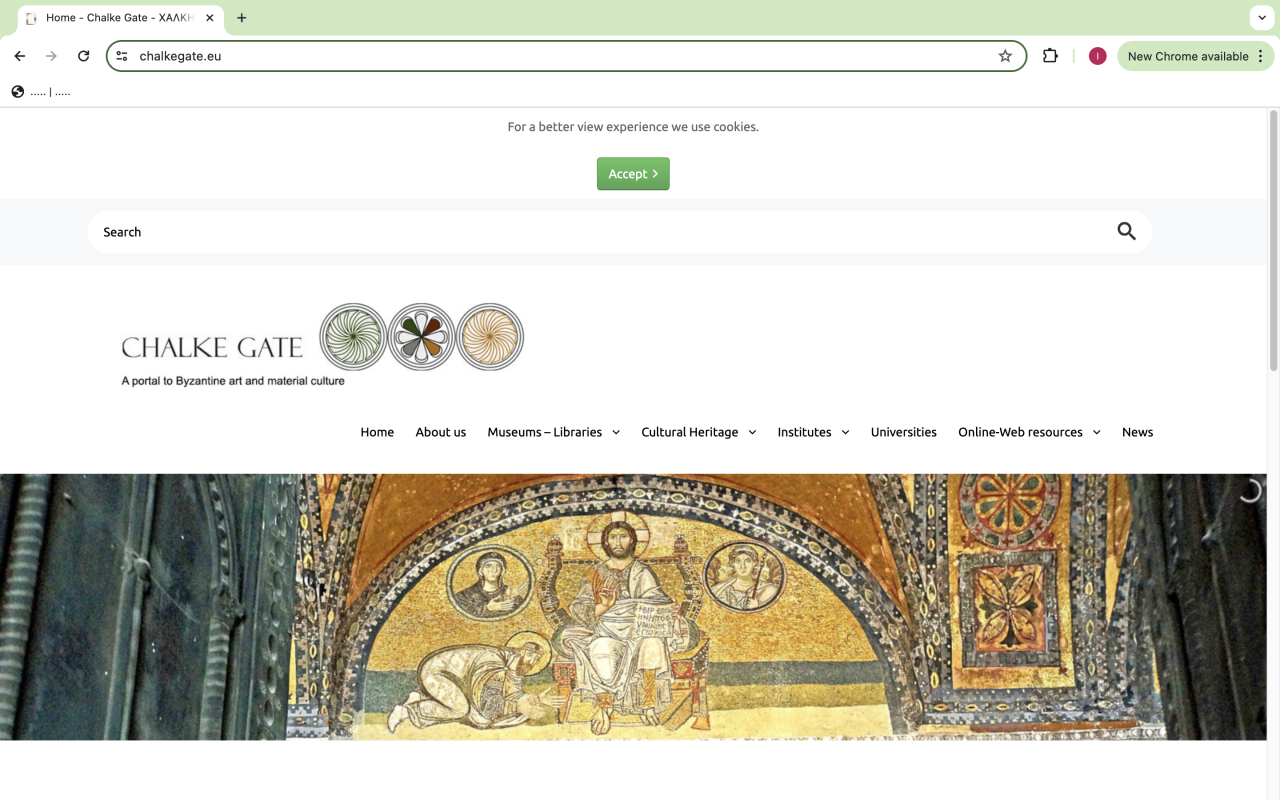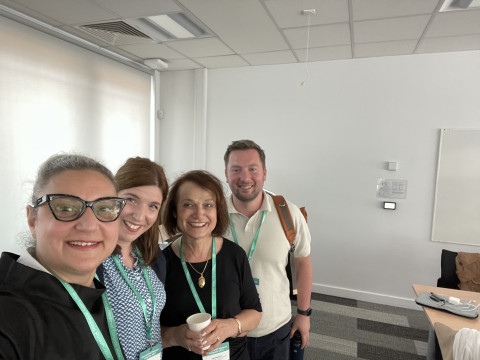BLAGO Fund at the International Medieval Congress in Leeds, July 2024
The BLAGO Fund-sponsored session took place at the International Medieval Congress in Leeds, UK. The Congress organized by the Institute for Medieval Studies at the University of Leeds is Europe's largest annual gathering of medievalists worldwide. This year's thematic focus of the Congress was 'Crisis', and it was attended by approximately 2,300 participants. Our session, "Crisis, Accessibility, and Preservation: Digitising Medieval Heritage in a Changing World" was held on the second day of the Congress, moderated by Prof. Ida Sinkevic and Dr. Ivana Lemcool. The session was in a hybrid format and it was followed by a significant number of attendees.
After Prof. Sinkevic opened the session, Dr. Lemcool presented the work of the BLAGO Fund to the audience, talking about the inception of the organization and how it was prompted in response to political crises that have afflicted territories where Serbian medieval monuments are located. She also highlighted that the goal of the work of the organization was not only to preserve, but also to make these monuments more accessible, and to that end, all of the created material is readily available on the BLAGO Fund website.
The first presentation was given by Prof. Eric Hupe from Lafayette College, Pennsylvania. Through his paper "Byzantium in VR: Expanding Access to Cultural Heritage," Prof. Hupe showcased the work of Zeuxis VR, a digital initiative of Lafayette College, which in addition to famous Renaissance monuments in Florence, Padua, and other Italian cities, also recently did work on Byzantine churches of Ravenna. This year, they completed fieldwork in the monasteries of Gradac and Djurdjevi Stupovi in order to create Virtual 3D models of these monuments. We are excited to say that when the work on these models is finalized, they will also be included in the archives of these monasteries on the BLAGO Fund website.
The second presentation was delivered remotely by Jelena Premović, curator of documentation at the National Museum of Serbia. She delivered her paper on "Digital Tools in Preservation and the Presentation of Medieval Heritage: The Work of the Department of Documentation of the National Museum of Serbia," demonstrating the relevance of photo documentation, comparing material preserved in the archives of the National Museum of Serbia with the contemporary photographs made by BLAGO Fund and the differences in the way some of the medieval monuments used to look, such as the White Church of Karan, that would have been unknown to us if the old glass plates made by Museum's experts had not been preserved.
The final paper of the session was delivered by Dr. Dubravka Preradović, a research associate at the Institute for Balkan Studies of the Serbian Academy of Science and Arts, with the topic "On the Importance of Digitising Old Photographic Documentation of Medieval Monuments: A Case Study on the Architecture and Frescoes of the Gradac Monastery." Dr. Preradović's presentation illustratively showed how the earliest photographs of Gradac monastery made by Gabriel Millet and Vladimir Petković at the beginning of the 20th century not only reveal the decrepit state of the monument at the time but also portions of wall painting which have since been irretrievably lost.
Since our final speaker, Dr. Vasiliki Foskolou, Associate Professor at the University of Crete, was, unfortunately, not able to join us either virtually or in person, Dr. Lemcool presented in brief outline the work on Chalke Gate, an open-access web portal on Byzantine art and material culture. Chalke Gate, an initiative of the Commission for the History of Byzantine Art of the International Association of Byzantine Studies, was developed by the Greek members of the Commission, the so-called "Athens Team" and funded by the Christian Archaeological Society (ChAE) in Athens. For the very complex task of categorizing, collecting data, and developing the portal, an international team of scholars was gathered, each of them contributing relevant information from their own country or field of academic expertise.
The papers in the session received overall positive feedback and interest from attendees. As organizers and sponsors, we are glad to have been able to highlight the relevance of digitisation and digital humanities, particularly in times of crises, and the work of past and present scholars and enthusiasts who have devoted their time and effort to preserving and making medieval heritage more accessible to a wider audience. We are also looking forward to future collaborations and finding new ways we will be able to promote and present our nation's treasures from the Middle Ages.



